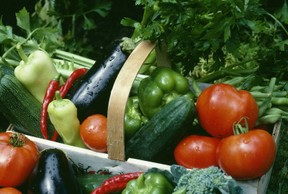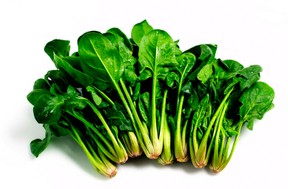Now, if you are like most mothers-to-be, there was no planning involved. It just happens! You can skip this then...
However, if you are in the organised position of planning to become pregnant then read on...
 Planning to become pregnant is a big step and you may think of everything but your diet. However, a healthy weight and diet can help make the coming nine months a lot more enjoyable. So these are a few of the things that you must consider...
Planning to become pregnant is a big step and you may think of everything but your diet. However, a healthy weight and diet can help make the coming nine months a lot more enjoyable. So these are a few of the things that you must consider...
For You the Lady
Take Folic Acid - In the UK, women are advised to take 400 micrograms of folic acid daily while preparing to be pregnant and for the first twelve weeks of pregnancy as well.
Folic Acid reduces the risk of your baby developing neural tube defects such as in Spina Bifida where the spinal cord has not formed properly. You can, of course, carry on taking the supplement for the duration of the pregnancy. This is just the bare minimum we should be aiming for.
For Your Partner - The father to be
A poor diet can have an effect on your sperm count. It can affect sperm quality and quantity and we do not want that now, do we? Taking a supplement with Zinc and Selenium will support normal fertility and also the creation of good healthy sperm (spermatogenesis).
Both of you should work on limiting alcohol intake as well. Keep up a healthy exercise regime and start working those stomach muscles, they have a lot of hard work to do.


 Planning to become pregnant is a big step and you may think of everything but your diet. However, a healthy weight and diet can help make the coming nine months a lot more enjoyable. So these are a few of the things that you must consider...
Planning to become pregnant is a big step and you may think of everything but your diet. However, a healthy weight and diet can help make the coming nine months a lot more enjoyable. So these are a few of the things that you must consider...
 Iron rich foods like spinach and other green leafy vegetables, pulses and fortified breakfast cereals. This should help keep anaemia at bay which is common in pregnancy.
Iron rich foods like spinach and other green leafy vegetables, pulses and fortified breakfast cereals. This should help keep anaemia at bay which is common in pregnancy.



 T-fal Actifry Deep Fryeron 06/02/2012
T-fal Actifry Deep Fryeron 06/02/2012
 Birthday in a boxon 05/22/2012
Birthday in a boxon 05/22/2012
 InsectLore Butterfly Garden - An educational breakthroughon 05/19/2012
InsectLore Butterfly Garden - An educational breakthroughon 05/19/2012
 Inspirational Home Decor with Wall Decals and Wall Arton 05/01/2012
Inspirational Home Decor with Wall Decals and Wall Arton 05/01/2012



Comments
Thanks for share